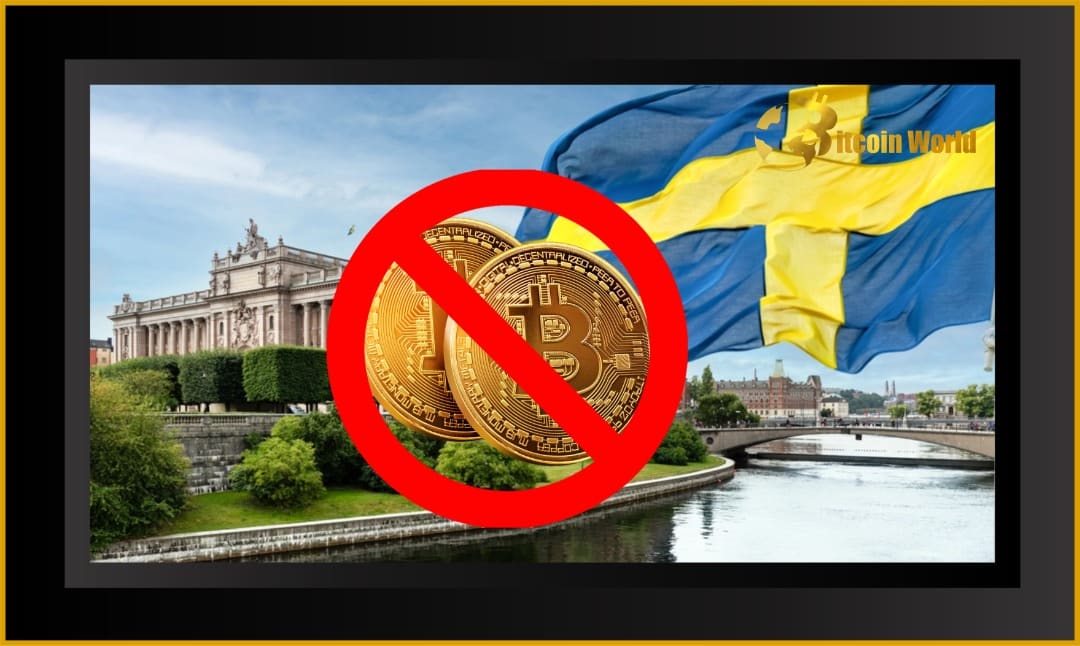The Swedish central bank, Sveriges Riksbank (“Riksbank” for short), has gone to Twitter to dispute whether Bitcoin is a currency.
Bitcoin must meet three severe conditions in order to be regarded a currency, according to Riksbank’s official Twitter account. That’s, operate as a custodian (store of value), offer a means of payment, and be a unit of account. While the central bank goes on to clarify each point in the tweets, it eventually comes to the conclusion that Bitcoin and other cryptos are assets rather than currencies.
Bitcoin, according to Sweden’s central bank, fails as a “value preserver” due to its excessive price volatility. Users of a currency should have confidence that the item they are about to purchase will remain largely price stable over time, according to the bank.
The bank also questions Bitcoin’s legitimacy as a payment method, claiming that “no specific statistic on how many enterprises accept Bitcoin” as payment. The bank uses Coinmap’s global directory of Bitcoin ATMs — roughly 29,500, as a proxy for Visa. Of course, which is accepted by over 60 million retailers worldwide.
Bitcoin, according to the Riksbank, also fails as a unit of account due to its incapacity to serve as a store of value or a means of payment. The central bank also points out that countries price products in their own currency, not Bitcoin.
“Bitcoin generally does not satisfy the three purposes and is thus not money, at least not in the sense”
“that it acts as money in the traditional financial system and in society,”
So, the bank writes at the end of its argument.
Lately, the tweet also applies the same logic to other cryptocurrencies, such as Ethereum.
Related Posts – The Indian Finance Minister hails blockchain technology
Disclaimer: The information provided is not trading advice, Bitcoinworld.co.in holds no liability for any investments made based on the information provided on this page. We strongly recommend independent research and/or consultation with a qualified professional before making any investment decisions.

